In my interview on the Genius Life Podcast with Max Lugavere, I answered quite a few questions about eating fish during pregnancy.
A snippet of this discussion was featured in an Instagram reel that has garnered a lot of attention (6.5 million views and counting), and quite a bit of criticism.
I’m no stranger to controversial topics (hello: folate vs. folic acid and consumption of liver during pregnancy), but I was honestly really surprised to receive so much backlash on this.
Granted, anytime your content reaches a wider audience than your usual readers, you can expect some of this. I understand that most people commenting don’t have a copy of Real Food for Pregnancy and don’t have enough context to make sense of the mixed information out there.
On one hand, we have practitioners who advocate for no fish consumption whatsoever, due to a variety of concerns, ranging from mercury and other heavy metals, other pollutants (like BPA, dioxins, and microplastics), and concerns over food safety.
On the other, we have those advocating for the consumption of some seafood, as long as intake is moderate and clients are choosing types that are low in mercury or toxins. I tend to fall into this category.
I even had some people come after me in response to the IG reel saying “Bullshit! There’s no data to show fish is beneficial in pregnancy!”
Oh really? No data?
I guess this person didn’t read the same systematic review on seafood consumption during pregnancy and neurocognitive development that featured 44 studies and over 100,000 mother-offspring pairs (more on this study in a minute).
But let’s circle back to the main topic I want to address: can you eat too much fish during pregnancy?
Can you eat too much fish during pregnancy?
I had a few questions come in asking, “If eating some fish is beneficial, is there an upper limit as to how much is safe?” In other words, is seafood beneficial at a certain level of intake, but potentially harmful at higher intake?
It’s a good question. Frankly, it’s not one I had previously explored in much detail because most of my focus had been on encouraging people to feel safe consuming even a little bit of fish. Remember, the average intake of fish among women of childbearing age in the US is a mere 3 oz per week. It’s usually a stretch for me to get people to eat 12 oz per week, and rarely have I had a client exceed that level of intake.
In searching for this answer, I came across some fascinating research: “Relationships between seafood consumption during pregnancy and childhood and neurocognitive development: Two systematic reviews.”
This was a massive systematic review that assessed dozens of studies, totaling 106,237 mother-offspring pairs to find out what level of seafood consumption during pregnancy benefits neurocognitive development in babies. It also assessed what level of seafood intake might cause more risks than benefits.
As little as 4 oz of seafood intake per week had some benefits, but greater benefits to childhood cognition were seen with higher seafood intake.
Shockingly, the researchers could find “no upper limit of seafood intake that resulted in adverse outcomes for any measure of neurocognitive development.” Even when seafood intake exceeded the current average intake of Americans by more than 20-fold (>100 oz per week), they still did not find any negative outcomes on cognition.
In terms of cognitive benefits, 24 of the 29 studies on prenatal intake found that mothers’ consumption of seafood in pregnancy was associated with better neurocognition on most or all of the tests given to the children. These benefits were found at the lowest levels of seafood intake (compared to no seafood intake whatsoever) and up. When looking at IQ in particular, the average increase in IQ scores from mothers who ate seafood in pregnancy was 7.7 points.
Many studies also found benefits beyond the current recommendation of 12 oz/week and they didn’t find any adverse outcomes associated with these amounts:
- Three studies reported benefits of seafood intakes ≥12 oz/week (this held true despite higher mercury intake among these women — more on mercury in a bit).
- One study had a range of seafood intake from zero to 56 oz/week. They reported that higher maternal seafood consumption was associated with more favorable language and communication scores.
- Two studies directly reported that the greatest benefits in their cohorts were in women who ate ≥ 12 oz/week.
- Three studies found cognition benefits in women eating an average of 14 to 18 oz per week.
- Perhaps most importantly, NOT A SINGLE STUDY reported any adverse effects from maternal consumption of ≥12 oz of seafood per week.
Fish and seafood have nutritional benefits beyond omega-3 fats
A piece of criticism I always face when talking about fish is that people suggest you can get all the same benefits with “none of the risks” if you just supplement with DHA, whether that’s from a fish oil or algae-based DHA supplement. While those are both certainly options — and ones that I support when DHA intake is minimal — these supplements only supply omega-3 fats, not the other nutrients found in fish.
One of the features of this study that I appreciate is that they assessed the overall effects of fish and seafood intake as a whole, so their results encompass the full effect of fish consumption, beyond just the omega-3 intake.
This is important because although there are known benefits to omega-3 intake (especially DHA and EPA from fish), a variety of other nutrients from seafood have benefits to pregnancy and fetal development, for example:
- Iodine – supports thyroid function, brain development, and breast health
- Selenium – supports liver function, prevents mercury toxicity, keeps inflammation in check
- Vitamin D – key for the development of healthy bones, teeth, and immune function
- B12 – supports fetal brain and nervous system development as well as healthy red blood cells
- Iron – supports healthy red blood cell production and fetal brain development
- Zinc – vital to immune function, thyroid function, and fetal growth
- B6 – supports methylation and healthy serotonin levels
- Taurine – plays a key role in fetal bone development and fetal growth
Just to name a few.
Does the mercury in fish harm my baby’s brain development?
This concern is raised from the extensive research we have showing that mercury is a neurotoxin. Therefore, it would seem logical to conclude that we should avoid the consumption of foods that might contain mercury, like fish.
But, it’s not that simple.
One of the big drivers in my work is the principle of “do no harm.” This is why I carefully examine research, especially on controversial topics, before making any strong recommendations either way.
The aforementioned review looked at this concern quite closely, as they explain here:
“Nutritional status and mercury exposure could simultaneously influence developmental outcomes in opposite directions. Thus, the examination of seafood as the independent variable simultaneously evaluates the magnitude of adverse effects from exposure to mercury and beneficial effects from nutrients on cognitive development. Considering this, we also sought to determine if any reported levels of seafood consumption resulted in net harms to neurocognition in pregnancy and in childhood. As to be expected, all of the studies that attempted to measure exposure to mercury in addition to maternal seafood consumption reported measures in maternal blood or hair or in cord blood.”
The researchers acknowledge that mercury has no known beneficial effects on neurodevelopment, so they wanted to see if mercury from seafood intake (specifically) was harmful.
“Mercury itself (or Hg chemical forms, e.g. methyl-mercury) has no known beneficial effects on neurodevelopment. Despite this, some studies reported a positive relationship between mercury levels and neurocognitive outcomes. Greater seafood consumption is often positively associated with higher mercury exposure. Therefore, when higher mercury levels were positively associated with cognitive benefits, these mercury levels were highly likely to be reflecting the nutritional effects of seafood thus these studies were also included. Comparators included the consumption of either no seafood or higher vs. lower intakes of seafood. Whenever possible, available data were evaluated to assess “oily” seafood species (e.g. tuna, mackerel, swordfish, salmon, sardines etc.) as compared to “white fish” (e.g. tilapia, cod, pollock, haddock, etc.) We included neurocognitive outcome measures that were age-appropriate, valid and widely accepted for both systematic review questions.”
A few findings on mercury exposure from seafood during pregnancy that I found interesting from this review:
- Not all studies found a difference in mercury levels in seafood-eating mothers versus those who did not consume seafood (probably because not all types of seafood are high in mercury!)
- Exceeding 12 oz/wk of seafood was beneficial to neurodevelopment and not associated with harm, despite reported exposure to mercury.
- Seafood provided overall benefits to neurocognitive development even when mercury exposures in the same study populations were high by U.S. standards.
- Maternal seafood consumption was beneficially associated with offspring psychomotor and IQ test scores despite the reported exposures to mercury.
- Conversely, when measured independently from seafood, mercury exposures were adversely associated with scores on the same tests. Specifically, higher maternal mercury levels in seafood eaters were associated with higher IQ in their offspring, whereas higher maternal mercury levels in non-seafood eaters had either no effect or a trend toward lower IQ in their offspring.
- In one study, greater seafood intake was highly correlated with higher mercury exposures, and yet this study also found that higher maternal mercury blood levels were associated with greater benefits in three scales of language development.
- Several studies reported that higher maternal mercury levels were adversely associated with neurocognition when examined independently of seafood. However, in each case seafood consumption itself was beneficially associated with cognitive development. This illustrates the importance of examining the source of mercury exposure.
Do the nutrients in fish outweigh the harms of mercury exposure? What about other toxins in seafood?
In short, yes, the nutrients in fish do appear to outweigh the negatives of mercury exposure (with few exceptions). Let me explain.
Recommendations to eat fish usually come with a bit of caution since some types of seafood are higher in mercury than others. Mercury is a toxin that can build up in fish either due to pollution from their environment or from eating other fish that contain mercury.
Certain species contain amounts that you’d want to use caution with, especially in pregnancy. These are often larger fish that have lived longer, such as swordfish, shark, king mackerel, and tilefish. Some resources expand this list to include cautions on bigeye tuna, ahi tuna, marlin, and orange roughy.
That said, because seafood has such incredible nutritional benefits — protein, omega-3 fatty acids, vitamins, and minerals — eating it usually outweighs the risks of mercury exposure. And the research supports this. The systematic review found that:
“Seafood provided overall benefits to neurocognitive development and exceeded potential harms from mercury in seafood.”
Because of the design of this systematic review — looking at the totality of outcomes relative to seafood intake — it, by default, takes into account the inevitable exposure to mercury and other environmental contaminants from seafood. They explain this further here:
“This evaluation of seafood consumption inherently integrates any adverse effects from neurotoxicants, and benefits to neurocognition from omega-3 fats, as well as other nutrients critical to optimal neurological development.”
So, while we can all lament that the oceans are contaminated with pollutants, they don’t seem to negate the benefits of consuming seafood. It’s odd to me how much people focus on contaminants in fish and seafood, but not other foodstuffs. You can literally find a reason to avoid just about any food due to the potential for contamination.
Orange juice? Contaminated with PFOAs. Strawberries? Pesticide residues. Sea salt? Microplastics. Rice? Arsenic. Chocolate? Heavy metals. Bread? Glyphosate.
I mean, you can drive yourself crazy with this stuff. I devote an entire chapter to the research on toxins in Real Food for Pregnancy because I do think it’s important. But we have to look at the totality of evidence before entirely eliminating a food because it might be a source of exposure.
We’ve never going to avoid every single exposure to toxins, so you may as well prioritize eating nutrient-dense foods that contain the very micronutrients that your body requires to detoxify.
To wrap up this conversation, here are some highlights from individual studies on mercury and seafood included in this review:
- In one study, women with the highest seafood intake had the highest mercury exposure, and yet their children’s IQ was 9.5 points higher than those with the lowest seafood intake and the lowest mercury exposure. You read that right — higher IQ was seen in children of mothers with higher seafood consumption, despite higher mercury exposure.
- In 12 studies, greater maternal seafood intake had overall beneficial effects on child neurocognitive development despite higher exposure to mercury.
Are some fish better to eat than others during pregnancy?
“Seafood” is a broad term for a variety of different species, and clearly they are not all created equal. Some bigger species, as I’ve mentioned, are higher in mercury and may want to be eaten with caution.
But which species are the most beneficial?
Some studies in this review compared “oily” seafood (like tuna, mackerel, swordfish, salmon, sardines, etc.) to “white fish” (like tilapia, cod, pollock, haddock, etc.). Oily fish tend to have higher concentrations of omega-3 fatty acids, so the assumption is that they may be more beneficial for brain development.
In this review, the results were mixed. Two studies found no difference in neurocognitive outcomes between oily or white fish. One study found that oily seafood consumption vs. white fish resulted in children with higher scores of identifying 3D objects by age 3.5. Another study found that children of mothers who did not eat oily seafood had nearly 3 times greater risk of hyperactivity compared to those who ate oily fish.
So are oily fish better than white fish? For some cognitive measures, it might be. But, that’s not to say there’s no benefit in eating white fish or that it needs to be avoided simply because it’s not as high in omega-3s.
What this review is clear on is that ANY consumption of seafood provides neurocognitive benefits, regardless of the type of animal. As with all foods — not just seafood — you’ll get the most benefit by eating a variety of species since they all have slightly different nutrient levels.
Summary
So, can you eat too much fish during pregnancy? The answer is apparently NO. The data clearly show that any amount of seafood can provide benefits, even past the recommended amount of 12 oz/week in pregnancy. To review:
- This systematic review found no upper limit of seafood intake that resulted in adverse neurocognitive development.
- Fish and seafood are incredibly nutrient-dense, and while omega-3 fatty acids tend to get the spotlight, the iodine, selenium, vitamin D, vitamin B12, iron, zinc, vitamin B6, and taurine in seafood are even more reasons to consume this during pregnancy.
- Exposure to mercury is a valid concern when eating seafood, and certain species may want to be avoided due to their high mercury content (even though the data on mercury exposure from seafood is reassuring). This includes swordfish, shark, king mackerel, and tilefish.
- Higher-than-recommended seafood intakes (>12 oz/week) were not associated with harm, despite the increase in mercury intake. Seafood consumption provides overall benefits to brain development even when mercury exposures are high by US standards.
- Oily fish may provide more benefits than white fish (in some studies), but all types of seafood have neurocognitive benefits during pregnancy and childhood.
Until next time,
Lily
PS — Tell me in the comments – what did your doctor or healthcare provider tell you about seafood and fish during pregnancy? Did they warn against it or recommend it?
PPS — Although I’m all for variety, one specific type of seafood I highly recommend including in your diet is shellfish, especially bivalves like oysters, clams, and mussels. You can read more about the why in this article.
References
- Hibbeln, Joseph R., et al. “Relationships between seafood consumption during pregnancy and childhood and neurocognitive development: Two systematic reviews.” Prostaglandins, Leukotrienes and Essential Fatty Acids 151 (2019): 14-36.
- Golding, Jean, et al. “The benefits of fish intake: Results concerning prenatal mercury exposure and child outcomes from the ALSPAC prebirth cohort.” Neurotoxicology 91 (2022): 22-30.
- Ralston, Nicholas VC, J. John Kaneko, and Laura J. Raymond. “Selenium health benefit values provide a reliable index of seafood benefits vs. risks.” Journal of Trace Elements in Medicine and Biology 55 (2019): 50-57.

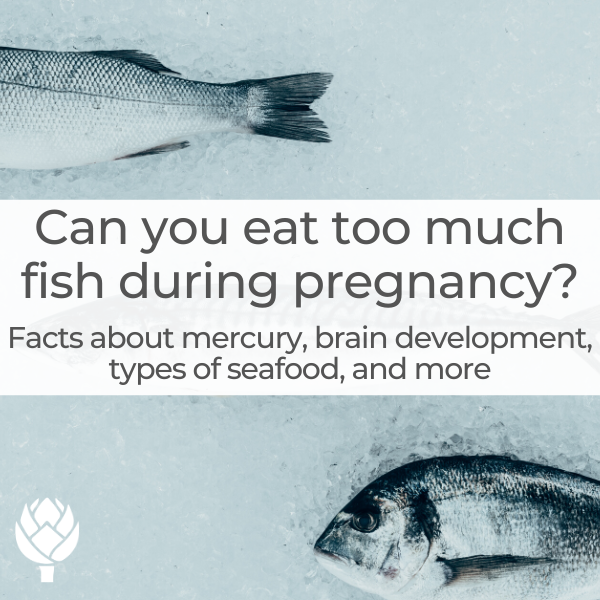

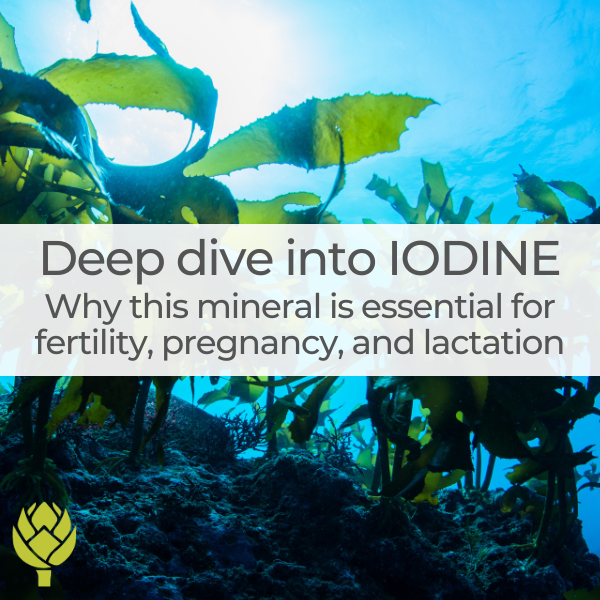
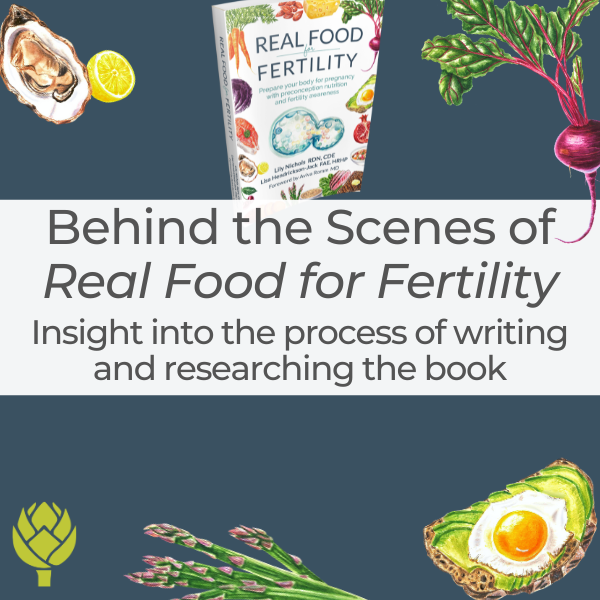
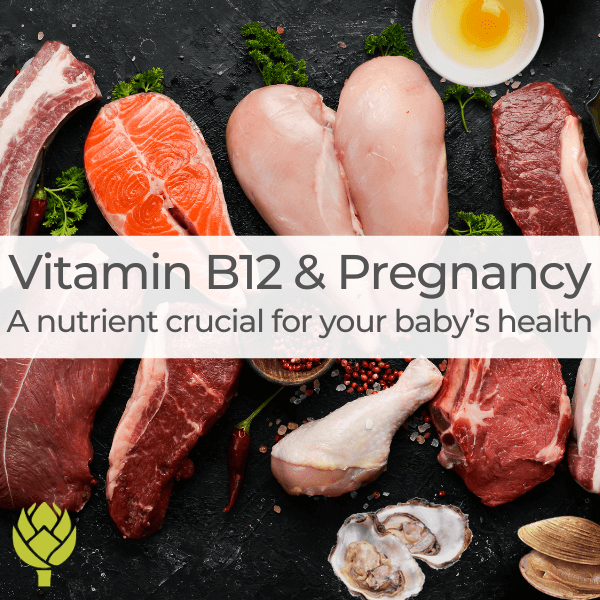
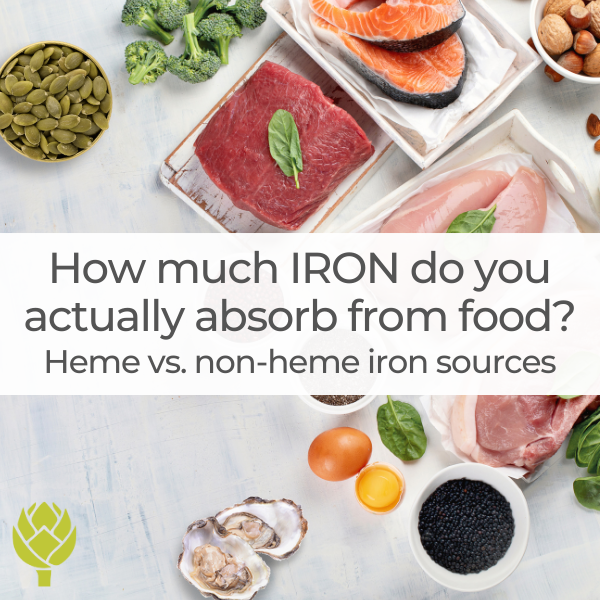



Just went to a doctor 3 weeks ago. Doctor told me “fish is ok , but limit to 2 servings a week”
It’s hard to know what that means if the serving size isn’t defined, isn’t it?
My doctor recommended me not taking Omega 3 supplements in my first trimester. Is this in anyway harmful, because I feel like I have some nausea relieve when I do take them daily.
This is the first time I’ve ever heard a recommendation like that and I don’t understand the rationale. I would circle back to your clinician for clarity.
Very interesting read. My OB advised me to only eat fish 1-2 per week, which I found to be overly conservative so I ignored. I had low mercury fish 3-4 times per week through my pregnancy as well as copious amounts of eggs for choline thanks to your book. My baby is very small now but it should be interesting to see how things play out as he gets older. Everyone does comment on how alert and curious he seems, so I’ll take full credit for that in the meantime though ;-).
Yeah the 1-2x per week advice is too vague to be helpful. Is that a 3 oz portion or 4 oz or 6 oz? Makes a big difference in the recommendation! Awesome to hear you have a bright, alert little one!
I’ve been eating quite a bit of seafood because it’s such an easy and healthy protein! Canned sardines, mussels, and oysters are convenient and salmon is so quick and easy to cook. I really appreciate the thorough research you did here so I feel comforted knowing I’m safe in the amount of seafood I’m consuming!
Great to hear, Erica!
This makes total sense if you look at populations with high fish consumption such as Japan and Korea. Pregnant women in those countries don’t limit their normal consumption during pregnancy, so we would have long ago discovered from them, by seeing a high level of problems in their babies, if there was any harm in eating that way.
Good point!
As a fellow dietitian, I know how hard it can be to present new and updated nutrition information to the public! Keep fighting the good fight! I’ve been learning SO much from your work and am so thankful you’re spearheading the movement of more informed prenatal nutrition!!
Thanks Kelsey! I’m happy to do this work and help improve nutrition guidance across the field.
I feel you! So frustrating when ppl believe outdated stuff they were once told.
I got your book, Food for Gestational Diabetes. It gave me the courage to fight for lower carbs in pregnancy #3. My team agreed to 100G/ day. My son is now 2 and speaks like my 4 year old healthy smart daughter. I did not do such low carb when pregnant with her. For context, she already reads book by herself.
So honestly I can’t believe how smart her little brother is. His memory is better than hers and he’s learning 2 languages and two alphabets faster than his sisters.
With baby #4 I ended up doing keto during pregnancy. My doctor was okay with that. I was very worried but see that I shouldn’t have been with how my 5 month old is developing. At 3 months she already copied our words so well that you could figure out what she was saying and so strong and healthy.
My doctor is awesome! She’s up to date on the research (except for vbac2c) and definitely never told me to avoid fish. I was told to eat it weekly.
I reduced my fish intake while pregnant – partly due to fears of mercury and also because of nausea associated with pregnancy. I knew the best fish that I could access was sardines but no way could I stomach them. I tried to make up for it by eating lots of fish during breastfeeding (and still breastfeeding at 2 years 7 months), and starting my baby on fish, especially sardines, as soon as he started baby led weaning. My son has advanced language skills, years ahead for his age, so hopefully somewhere I did alright. I have to admit that I feel let down that I avoided fish partly for fear of mercury – I definitely could have stomached salmon and tuna more often while pregnant. But going forward I know better.
My PCP recommended intake folic acid and that I don’t eat sushi. So glad to see that eating fish, including sushi, is low risk and very beneficial. Thanks for the clarity!
Hi Lily, I’m from Australia and unfortunately only discovered you and your book at the end of my pregnancy, so I unfortunately went with the standard advice of fish once weekly and supplements. I’m assuming I can still make a big difference to my newborn now as I’m breastfeeding? Do you think there is a massive benefit to having wild salmon as opposed to farmed salmon? I can probably afford to have wild salmon once weekly but could have salmon more often if it’s farmed (such a difference in cost!). From what I’ve read above sounds like even the farmed salmon is beneficial so would be better to have this more often than less salmon overall. Thanks so much in advance!
Interesting! I’m also from Australia (Sydney) but was not told to limit to once per week. Just to avoid raw fish/sushi and larger fish like tuna & swordfish.
I ate a fair amount of cooked salmon in my first pregnancy.
My now 3 year old is very cognitively sharp and we’ve been told his language ability is equivalent to a 5 year old!
Second pregnancy now and discovered Lily just over halfway. I didn’t feel like any fish for ages but I’m upping my intake now.
I’m sure it’s very too late to start eating more seafood!
It’s beneficial at all stages. This article may reassure you if you weren’t interested in eating much seafood early on. This is pretty common. https://lilynicholsrdn.com/too-late-nutrition-changes-pregnancy/
I gave birth to my second son while living in Japan. I asked my doctor (in Japan) if I could eat sushi and she said of course! I asked if there were any types of fish I should avoid and she said nope! It’s so interesting the cultural differences 🙂
Hi Lily,
I just read your article about mercury and seafood consumption. I found it incredibly helpful! I do have a couple of questions:
If I am unable to eat seafood certain weeks, is it helpful to increase my omega supplements?
2) What trimester is the most crucial for consumption of seafood, if there is one?
I was always told low-mercury fish is great but to not exceed 12 oz a week, which was really hard for me as I looove salmon, chunk light tuna, talapia, etc.
I had severe aversion to meat during the first half of my last pregnancy, but I craved fish. It was really hard to limit myself to 12 Oz./week given that there were not many other protein-rich foods I could stomach. My midwife told me to eat as much fish as my body tells me to, but to choose types low in mercury (salmon, shrimp, sardines, etc). I followed her advice and I have a very healthy and bright 15 month old. No harmful effects.
I am 10 weeks pregnant with my second and just yesterday I asked my doctor, he said to limit fatty fish to one serving a week. I also asked about tuna and he said to avoid because we don’t know the mercury levels as they depend on the life of the tuna. I have had tuna a few times because I had a ravaging craving for it but now I feel like I have ruined my baby…
Hopefully this article has reassured you that the nutrients in fish and seafood far outweigh any concerns over mercury exposure.
Really love this article and how you specifically address the question of can you eat too much? As a midwife and a mum I have constantly been told to limit it and reduce. It’s great and reassuring to see the evidence and also I love that you address the additional y nutrients that you get from eating whole food seafood that you otherwise would not get in supplementation. Great article
Glad it was helpful, Kate!
Thank you for your thorough research, Lily! I read your book in my first pregnancy. I could stomach sardines in my first pregnancy but have had a harder time so far in my second. I saw canned smoked sardines in the store yesterday. Is there any concern I should note with smoked fish before trying it? Thank you!
Those are perfectly fine, too.
Hi Lily,
Curious your thoughts on this study:
https://pubmed.ncbi.nlm.nih.gov/23443828/
Shira, RD
my body CRAVED fish (and I’m not a fish eater at all! don’t like it) I ate as much sushi and cured fish as possible those first 4 months. My body wanted it sooooo badly. Maybe it was the salt it wanted? Either way, I listened! I wish we had more info on cured fish like lox and herring, that’s what I was eating. And… bears mentioning my child is a genius. lol. no, but seriously her verbal abilities were so advanced that it was said she spoke at the age of a 1st grader at 18 months.
What if someone is allergic to fish? What if someone just doesn’t like fish, and the pregnancy nausea makes the dislike even stronger? Is there something we can do or eat instead?
They can make up for the omega-3 (DHA) via an algae-based DHA supplement. The remaining micronutrient needs can be met with a combination of an omnivorous diet plus a comprehensive prenatal vitamin.
Thanks! Is there an algae based DHA supplement that you would recommend over others? What about fish egg supplements for people that aren’t allergic, but just don’t like fish? For example, the one from Hoki fish that is on the Ancestral Supplements website.
If pregnant and eating oily fish 3-5x a week (4-6 ounce servings), would you also recommend still taking a prenatal fish oil supplement (Nordic brand)? If there is no limit to how much seafood is helpful
Any issues with consuming smoked salmon? Or ways to mitigate food risk?
We have a deli near our house which smokes their own fish so wouldn’t be the kind you can just pick up at the supermarket. My wife has been really craving it – she’s at 12.5 weeks now!